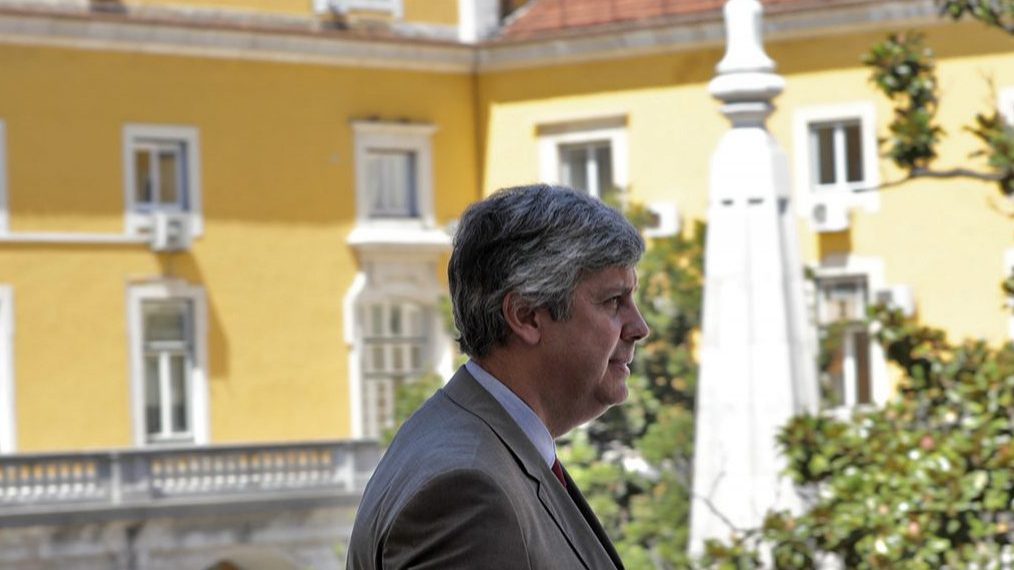IMF praises Portugal for the effort made in recent years
The deputy director of the IMF Budgetary Affairs Department, Paolo Mauro, praises Portugal for the effort made in recent years, arguing that the country is better prepared for a crisis.
The International Monetary Fund (IMF) has released almost unprecedented forecasts in recent decades for both the world and Portugal: Portuguese GDP will fall by 8%, the deficit will increase to 7.1% and public debt will reach an all-time high of 135% by 2020. Faced with this “unimaginable” shock, as Mário Centeno called it, the Portuguese State will put up with?
To ECO, the deputy director of the IMF’s Budgetary Affairs Department, Paolo Mauro, does not answer directly, but argues that Portugal has done its homework and is now better prepared. “Portugal has entered this crisis with much stronger public accounts,” replies Vítor Gaspar’s deputy, even arguing that “the Government’s effort to strengthen fiscal cushions in recent years is now paying off.
Paolo Mauro gives as an example the fact that Portugal recorded a budget balance of 0.2% of GDP in 2019, the first surplus in the country’s modern history. “It’s an impressive success,” says the public finance expert who has been working at the IMF for over 20 years. Part of that “success” is also attributable to its boss, Vítor Gaspar, who was Finance Minister at the start of the PSD/CDS Government in 2011, having carried out the famous “huge tax increase”.
However, the IMF’s forecasts for 2020 are not encouraging and once again place on the table the danger that Portugal – a country with a high level of public debt in international terms – will once again suffer from pressure from rating agencies and the financial markets, calling into question its financing capacity and could lead, ultimately, to a new bailout and more austerity.
Asked about this possibility, Paolo Mauro does not answer directly, but explains that the current situation differs from the financial crisis. “The causes of the deficits are different. The current crisis has no parallel”, he begins by saying, arguing that “it is necessary and appropriate” for Governments to help citizens survive this period as well as businesses. “[More] bankruptcies and unemployment [due to lack of state aid] would lead to a much weaker recovery,” he anticipates, pointing out that, for these reasons, the increase in deficit and debt is “expected and part of the necessary response to the crisis.”
“Given that this larger deficit [-7.1% in 2020] reflects the fall in [economic] activity and one-off emergency measures, as soon as growth returns, the budget balance will improve significantly,” predicts Paolo Mauro. In fact, the IMF forecast is that the deficit will fall to 1.9% in 2021, a figure that is already below the 3% imposed by European rules, which are currently suspended.
The same can be said for public debt: “With a reasonable recovery [of GDP], the public debt ratio will decrease in 2021”, he expects. The Fund’s forecast is that public debt will fall to 128.5% of GDP in 2021, after reaching a record high of 135% in 2020. Portugal will continue with the third largest public debt in the Euro Zone and the Government’s goal of reducing public debt to 100% by the end of the legislature will be practically aside.
Consolidation effort gives stability to interest rates
But even if this crisis is different, once the pandemic has passed, can the pressure not return to the indebted countries? Paolo Mauro is also not adamant in his answer, but he recalls that, despite the fact that Portugal’s spread has “increased modestly” in recent weeks, the differential in interest rates continues to be below what was observed during the Eurozone sovereign debt crisis or what happened in 2016 when investors were reticent about the creation of the ‘geringonça’.
“The Government’s efforts to reduce the deficit in recent years have contributed to this stability of interest rates,” said the deputy director of the IMF’s Budget Affairs department, adding that the “strong measures” taken by the European Central Bank (ECB), other European institutions and member states have helped to give investors security and keep interest rates at “reasonable levels.”
In other words, Paolo Mauro’s response suggests that the IMF considers that Portugal’s homework plus European aid will be enough to avoid a repeat of the sovereign debt crisis. What’s more, this is a global phenomenon – “debt ratios are expected to increase in most countries”, he points out – which could leave the Portuguese state out of the limelight. “The pandemic will eventually come to an end, and it is reasonable to expect that the increase in the debt ratio will be a ‘one-off’ event,” he considers.
The important thing now is that Governments help all economic agents to avoid a greater hecatomb in public accounts due to high unemployment and much more bankruptcies. But that help will have to be done in a ‘transparent’ way so that there can be ‘audits’ after the way the money has been spent. “Do whatever is necessary and keep the revenue”. That is the advice to the Governments of Paolo Mauro, quoting the famous expression whatever it takes’ by former ECB President Mario Draghi.


